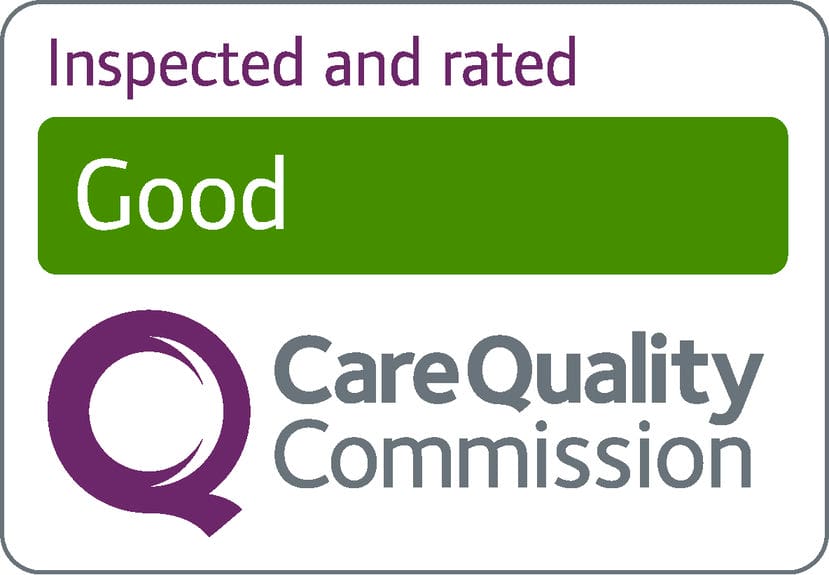If you’ve been thinking about having laser hair removal, it would be sound advice to do a little research before you commit to the treatment. The idea of silky-smooth skin and throwing away your razors is, let’s face it, blissful. Before you get to that point however, it’s super important to have some understanding of this incredibly popular treatment to ensure that you are doing the right thing. Here are 7 tips that may help your decision:
1. Not all treatments are equal
In Hertfordshire, as throughout the UK, laser hair removal seems to be offered everywhere! The question is, are all machines and practitioners equal? Quite honestly, no.
Not all laser hair machines are good; there are lots of cheap imports which may not be as effective as lasers such as the Diode laser (such as Soprano Ice), long-pulse ND Yag and the Alexandrite lasers; all of which have been around for decades and have clinical studies supporting their efficacy.
Experience is another factor that can impact your results; some of those practitioners with less experience with these lasers may build up the treatment energy levels slowly as you go through your course of treatments rather than starting you at a higher-level right from the start. This may mean that you need more treatments.
2. Be patient
We know you’re fed up of shaving and want the results ASAP, but the average patient doesn’t start to see tangible results until approximately the third treatment. This is true no matter what laser is used.
The average patient will need 8 treatment sessions, each one spaced approximately a month apart. Darker skin types, on average, may need a few more sessions.
3. Unexpected benefits
Ok, so we know that laser hair removal = permanent hair reduction but aside from this, laser hair removal can help stop those annoying (and often painful) ingrown hairs because the hair growth is much slower or non-existent. As you’re not needing to shave as much during your course of treatment and thereafter you can also say adios to skin irritations such as shaving rashes.
4. You may need to re-think your current hair removal
For laser hair removal to be effective hair needs to be present in the skin during your course of treatment. We’d recommend shaving or trimming the hairs throughout the process. Don’t be tempted to pluck or wax those hairs as it will impact your progress!
5. Consultations are important
Google is a fantastic tool for research, however, it’s difficult to know what information should be taken with a pinch of salt. A consultation is your chance to ask those questions and have them answered by a professional who has training and experience in the treatment. At The Skin to Love Clinic in St. Albans your consultation is with a medical practitioner who also performs a test patch in the area you would like treated during your consultation (at the highest energy levels safe for your skin type); this is super important to make sure your skin is safe during your laser treatment.
6. Skipping appointments
This is a no-no if you want the best chance of getting good results. Your hairs are all at different stages of their growth cycle at each treatment session. Laser hair removal treatment is most effective when your hairs are in the anagen phase of growth and only a small number will be in this phase at the time of treatment; if you skip your next appointment those hairs that are in anagen that day, but weren’t at your last treatment, will miss their opportunity to get zapped. This will most likely mean having to have more than the recommended number of treatments.
Of course, life happens and there may be an occasion when you have to postpone your treatment, but the moral of the story is not to make it a frequent occurrence.
7. Maintenance
The average patient will achieve an overall 10 to 15 percent reduction in their hair growth per treatment. However, this is not an exact science as we can’t see which hairs are in the desired hair growth phase at any given time; some patients may need less than the suggested treatments and some may need more. The suggested amount is an educated guide. It would be realistic to keep in mind that you may need additional treatments and possibly maintenance treatment at some point in your life.
Hormones have a big part to play in hair growth and fluctuations in your hormones can stimulate growth. Those with Polycystic Ovarian Syndrome (PCOS) are very likely to need maintenance treatments due to the influence of hormones.
If you would like to learn more about laser hair removal and see if you are suitable for the treatment, please do not hesitate to contact our team to arrange a consultation with one of our experienced medical practitioners.
Disclaimer: This blog is not to be used for diagnostic purposes. We are all unique which means that our results, recovery and suitability for any type of treatment will vary. Always seek the advice of a professional should you have any health or cosmetic concerns or to discuss treatments specifically for you.





